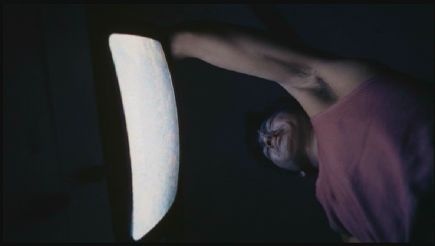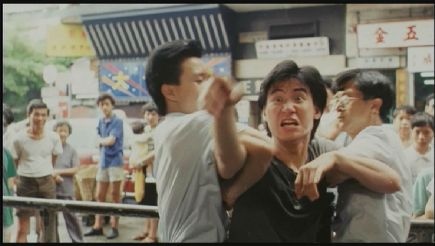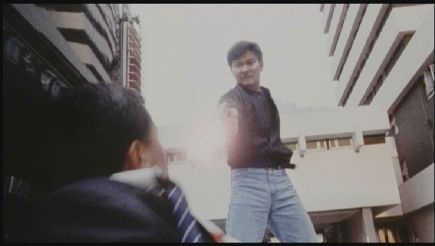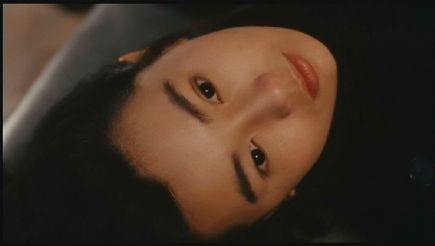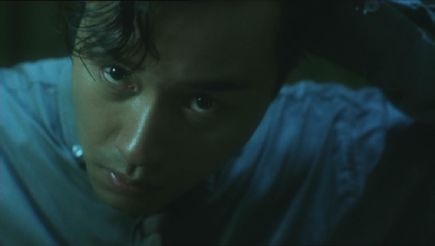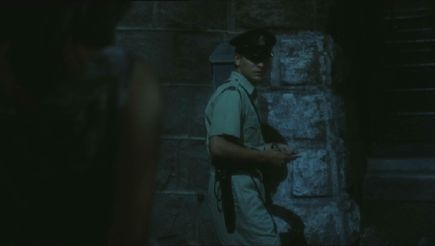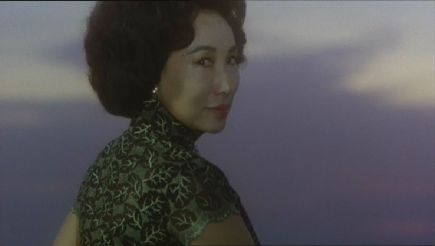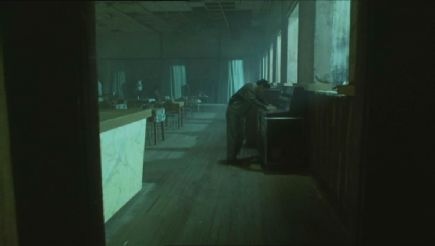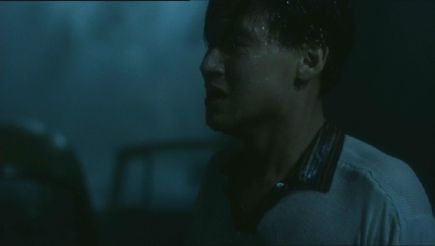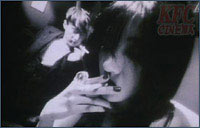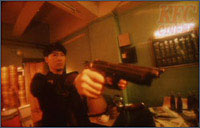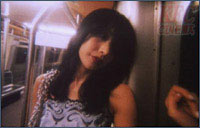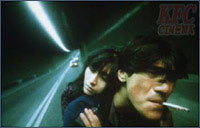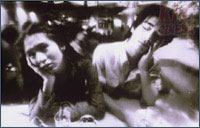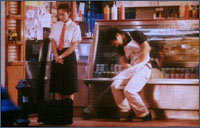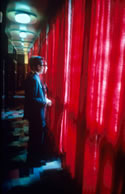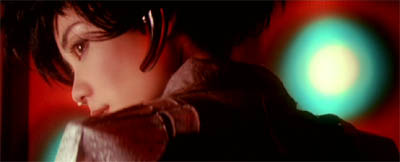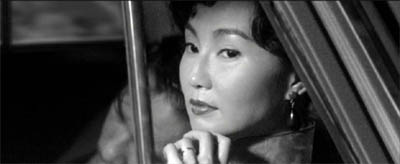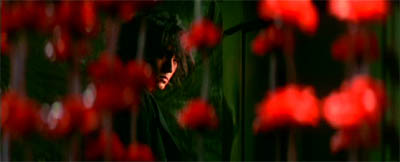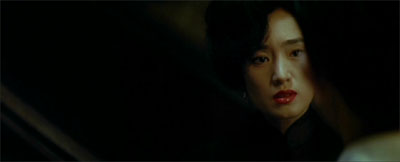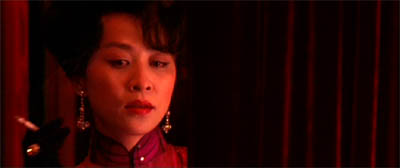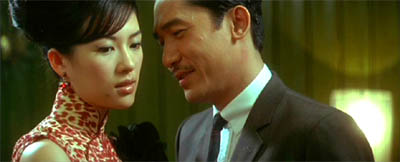| Reflections
on China/Taiwan/Hong Kong
The
2007 Summer Service and Learning Program
The
2006 Summer Service and Learning Program
China
China
Today Taiwan
Taiwan
News Hong
Kong
RTHK
Online
China
History Timeline
|
| |
|
| A Source Book
in Chinese Philosophy by Wing-Tsit Chan : I
have to admit to one thing; this book is not for the timid. It took me a long
time to read and the myriad of names and dates did confuse me. This massive work
of over 800 pages (it is a bit of a misnomer as the book is about 780 pages of
text and notes - the rest is appendix, bibliography and index) is really an almost
exegetical read of Chinese philosophy.
Wing-Tsit Chan obviously took great
care to plan out this book. The main advantage of this book is that it makes a
whole range of primary sources accessible to the English speaking reader. As best
as these books can get, it tries to cover the whole gamut of Chinese philosophy
from pre-Confucian all the way through to Maoist China. If there is one thing
that stands out is that Chinese philosophy is just as (and I hate to juxtapose
- but I will this one time) convoluted and affected by forces as (or even more
than our very own "western" tradition) acting on it. If you take the
analysis from Confucian to Neo-Confucian (and even beyond), this development takes
a tour de force through a variety of schools inclusive of (but not excluding others)
of Taoism, Buddhism, modern neo-Rationalist and neo-Idealist movements.
The
book is full of valuable "digressions" (if you can call it that) of
details concerning the various players that are involved in the process of change.
As if almost being the de facto standard, he starts with Confucianism and presents
important extracts. Certainly, we have to be a little critical of what he opts
out by what he opts in - but that is the work of specialists. Chan writes from
and about the Analects and follows is metamorphosis through Mencius, Hsun Tzu,
and Tung Chung-Shu. Later, he deftly shows how different (significantly different)
Confucianism is from Neo-Confucianism. Also important is Chan's treatment of the
Tao-Te Ching and its impact on the modern epistemological and metaphysical traditions.
For those who have studied humanistic Chinese traditions will form an opinion
of the Chinese as hard-core pragmatists with no sense of aesthetics or metaphysics.
This book will, as it did me, pleasantly change all that. Despite the strict adherence
to age old traditions, influences most Buddhist - clearly show a bent toward the
metaphysical. I have to admit that I would on the occasion get caught up in the
almost obsessive references to things like the turbidity of water and how it is
correct or not to use it as a metaphor for some essential things like man's nature.
Last but not least, are how interestingly Chan talks about the traditions in the
west - especially Kant, Bergson and Nietzsche. Oddly enough, for those of you
who were paying attention, the digression at the end about the signs and symbols
sounded suspiciously like Claude Levi-Strauss. For the novices out there, I highly
recommend this book as a starter but certainly one cannot neglect the complete
The Analects, Doctrine of the Mean, The Great Learning, The Classic of Filial
Piety and the works of Mencius to get some sense of modern day sino-based traditions.
Despite having been written in 1969, the book is as timeless as ever and one of
my personal favorites. |
| 
| Wild Swans:
Three Daughters of China by Jung Chang: I
come into Wild Swans: Three Daughters of China by Jung Chang a little late in
the game. Nonetheless I find it's broad base in terms of time and topic highly
informative in this post cold-war era. Perhaps it is timely since China is getting
a revisit these days as an emerging superpower. True to form, and it is documented
in this book that unlike most other countries, no other modern country has seen
the kind of upheavals China has. That the history of China is cyclical should
come as no surprise and that China is a country of contradictions blending as
this book does periods of construction and deconstruction.
One thing Wild
Swan does well is to explore the nature of the excesses of a totalitarian regime.
Chang does focus on, and Wild Swan is full of examples of, is abject poverty.
Chang does show the Chinese have a certain resiliency of spirit or is it naiveté.
Having grown up in the Marcos dominated Philippines; it is easy to see why so
many choose not to fight but to go with the flow. A difficult thing power is really.
Truth is often a difficult thing to figure out, specially in a situation like
this. After reading the many pages Chang writes about the Cultural Revolution,
I am reminded of Pol Pot and the atrocities in Cambodia. Was Pol Pot mesmerized
by the power that Mao wielded and was he guided by it? As a historian trying to
weed through an archive already tainted by agenda it is interesting when one like
Chang can, through experience, demarcate where truth and lies converge into a
simulacra propagated by the state.
No doubt Wild Swan is personal perspective.
However, it is not anything near the Woman Warrior by Maxine Hong Kingston but
more like A Fine Balance by Rohinton Mistry. Jung Chang does not weave a tale;
she is not a spin-doctor. Chang does deftly moves from her grandmother (the concubine
and later wife of the old guard), her mother (who becomes perhaps next to the
her husband the most ardent follower), and herself (the astute cynic). Chang is
at her best when she fuses all three. However, this is not a story with three
perspectives but one writing about all three. This is not a minor distinction.
Chang is convincing about how she both suffered and benefited from the connections
of her grandmother and mother/father had exposing a huge fissure in their cultural
infrastructure an almost endemic sense of corruption and short sightedness. Nonetheless,
I am still really intrigued by the Mao phenomenon. Moreover, I was really intrigued
by the insight she so calmly narrates concerning the destruction by the Red Guard.
It was not so much what they had lost but that it will never be rebuilt. There
really is much to be said about preserving out past - it gives us a roadmap of
where we came from. Ironic as it seems that a country that preserves the wonders
of Xian was capable of such wanton destruction in the name of the creation of
a new order.
Readers explore the notion of an Orwellian like setup - much
like what Milan Kundera and Ivan Klima have written about in their more Samizdat
days. We write as if it is over. Is it? The value of a book like Wild Swan is
one that A Diary of Anne Frank would have - lest we forget. As a primer for historical
reference concerning modern China this book is valuable. As a warning and a lesson
learned, the value of this book is incalculable. |  | To
Live: A Novel by Yu Hua: To Live is a "transformation" novel as
much as it is historical fiction. Fugui "transforms" from self-indulgent
capriciousness to loyal husband and father in a short but oftentimes dragging
1993 novel famous all over the world and was the basis for a Zhang Yimou classic.
Originally banned in China, this profoundly moving novel was transitioned into
a movie in 1994. To Live has since been taunted as one of the most influential
works of literature to come out of modern China.
As a short synopsis, the novel
is set around the turbulent time of the Cultural Revolution. The book (unlike
the movie) begins with narrator Fugui describing his happy-go-lucky life as a
womanizer and gambler to a very intent listener (who remains nameless). Fugui
loses everything - up to the extent of the family estate. What ensues is a tragic
story and a tale of man's (and women's) will "to live." Fugui is transported
all over the place and survives the consecutive deaths of: Youquing, his 13-year-old
son; Fengxia, his beautiful deaf-mute daughter; Jiazhen, his wife, Erxi, his son-in-law;
and Kugen, seven-year-old grandson. One of the more memorable musings on death
is outlined below: "After Long Er was executed, cold chills ran up and down
my neck the whole way home. The more I thought about it, the more I realized just
how close I had come to being in Long Er's shoes. If it hadn't been for my father
and me, the two prodigal sons, I would have been the one to be executed. I rubbed
my face and arms - they were all okay. I thought, I should have died but didn't.
I escaped with my life from the battlefield, and when I cam home Long Er took
my place as the fall guy. The graves of my ancestors must have been in the right
place." (84-85)
Fugui lived to bury all those he had grown to love and
work alongside, and transfer his affection to the aging ox with which he ploughs
his shrunken patch of land. Yu Hua, however, takes care to make sure that we see
the anger and rage that flourished in the era of the Cultural Revolution: ""We'll
be able to make three bombs out of this iron, and all of them are going to be
dropped on Taiwan," he proudly declared. "We'll drop one on Chiang Kai-shek's
bed, one on his kitchen table and one on his goat shed!"" (118-119)
Though
the work can is heartbreaking, it is narrated sardonically but readers pick up
on Fugui the survivor. Yu details the grittiness of life under communism as well
as the weakness of the human condition than upon the politics behind the given
scenarios. This engaging story is one that this reader won't easily forget. In
the translator's afterword, we read: "Having grown up near hospitals and
operating rooms during modern China's most vicious and chaotic period, Yu Hua
has created a fictional reflection of this reality, a world imbued with violence,
death, and unspeakable cruelty." (245). A must have for anyone interested
in Chinese and Asian studies. |

The
Emperor and the Assassin ~ Gong Li: Chen Kaige's THE EMPEROR AND THE ASSASSIN
is both grand and intimate. The movie is set during a time when a soon to be created
China was divided into seven separate kingdoms. THE EMPEROR AND THE ASSASSIN is
a visually stunning rendition China's first uniter - the emperor Ying Zheng. Ying
fights six wars to unite all the kingdoms under into the Kingdom of Qin. As luck
would have it, there is always complexity. Emperor Ying (Li Xuejian) is, as the
movie depicts him, is an astute planner. We are introduced to him as he conspires
to invade the kingdom of Yan. The conquest of Yan would cause a domino effect
that would make the conquest of the other kingdoms simply a matter of time. As
part of his plan, Emperor Ying banishes Lady Zhao (Gong Li), who while 'seemingly'
cast out to Yan solicits the services of an assassin. Drawing the support of the
Yan rulers - Lady Zhao precipitates the conflict. Zhao through her duplicity provides
an excuse for the invasion. Moreover, Ying is seen as a man of destiny by escaping
death so heroically. I might be wrong in making this observation but most movies
of this genre follow the formula of huge and spectacular on the one hand and intimate
and personal on the other. There is a plot twist... While the entire world is
turned upside down Zhao escapes while Ying lifts all restraints and sets out to
destroy Zhao's hometown after a revelation concerning his origin is too painful
to handle. Zhao decides on the assassination for real but does not factor in falling
in love with the assassin Jing Ke (Zhang Fengyi). The story becomes even livelier
when both conspire seriously when previously it was simply a hoax. My suggestion
is to go 'retro' and simply enjoy the duality of spectacle and intimacy. With
$240M Hong Kong dollar epic HERO all the rage, movies about Qin Kingdom development
like THE EMPEROR AND THE ASSASSIN are in danger of disappearing from view. The
irony is, the reverse should be true.
|
| | | The
Gong Li Collection |  | Zhou
Yu's Train ~ Gong Li: The jury is still out on this movie. I purchased it
on Amazon.com on the premise that it is Gong Li's triumphant return to the big
screen. Somewhat out of character, the movie seemed like a mishmash of several
styles and looks that reminded on of faux art house Wong Kar-wai - with the stop/quick
shifts in slow motion and (I admit that Wong Kar-wai does not have exclusive rights
to this technique) but cut angles on bodies removing any references to faces and
emotion. If it was an attempt to rip Wong Kar-wai - then it was a dismal failure.
If it tried to stand on its one integrity - I apologize - as that is another story
entirely. Undisputedly, among the bevy of actors and actresses to come out of
mainland China in recent time, no one single actress (although Zhang Ziyi is painfully
trying) has achieved greater top-of-mind awareness than Gong Li. After a long
and exhaustive career one would take a much deserved break and we welcome her
return - albeit with some reservations. Li plays the lead as the libertine Zhou
Yu. Zhou is a contemplative porcelain painter from Sanming. She meets aspiring
poet Chen Ching (Tony Leung Kar-fai). She falls dangerously in love with him after
the cheesy comparison he makes of her to this place called "Lake Celestial."
Predictably, she embarks on an incurable twice-weekly consummations of their passionate
affair by her taking a train ride to Chongyang. The story, at least on the surface,
smacks of female empowerment. She decides when she wants to see him, she decides
when to go, and she also takes an active interest in the writing career of her
new boyfriend. Moreover, she raises money to publish his first book and organizes
poetry readings on his behalf. Nice arrangement. Not really. When time for him
to change jobs - Zhou Yu's obsession with Chen Ching turns into, well, an obsession.
Their cozy arrangement gets "derailed" (no pun intended) by two occurrences.
[1], Chen begins feeling suffocated by all the attention from Zhou, which [2]
makes his uncontrolled relocation to Tibet easier. Here is where the obsession
comes in. Even after Chen leaves for Tibet, Zhou continues to make the twice-weekly
trips to Chongyang. In one of those obsessed trips to Chongyang - one wonders
how a ceramic painter can afford both the time and money to do all this spontaneous
travel) she strikes up a friendship/relationship with a fellow commuter, Zhang
(Sun Hong-lei). One gets the sense that what is being invoked here is the tenderness
of love so evident in a film like "The Road Home." What we see is a
pathetic, love struck elegant Gong Li trying to duke it out in art house angst
like much younger actresses. Although she still is stunning she cannot pull off
the love struck innocent so evocative of "The Road Home."
To be fair,
that is not where the story either ends or even begins. Enter Xiu (Gong Li in
short hair). Xiu it seems is Zhou from a different time. Xiu navigates through
Zhou's stomping grounds - somewhat complicating the story - from the train ride
to Chongyang to the cable car station on the way to Chen Ching's home. One would
think that some tragedy struck and she was revisiting her past - to form closure.
To ensure no spoilers, the viewer has to wait until the film's last fifteen minutes
where this character is somewhat explained. Xiu is shown reading a book entitled
"Zhou Yu's Train", which calls into question whether Zhou was a real
person or not.
To ensure that we give credit where it is due, "Zhou Yu's
Train" is impressive. The film's landscapes (which is the real start), which
include a juxtaposition of rural and urban settings. Both are exquisitely captured
by Wang Yu's pristine camera. Shigeru Umebayashi's melancholy score saves the
graceless Li's in slow motion. Li, argue is best seen in her elegant best in movies
like "Raise the Red Lantern," "Temptress Moon," and "The
Shanghai Triad."
Unless you are a die-hard Gong Li fan, this movie is
staid and tepid. The attempts at non-linearity make the movie an exercise in intellect
rather than emotionally stirring. Not to say that the two cannot be intertwined
- they don't work as a tandem here. I love trains, I love Gong Li, I love a mystery,
I love art house. The convergence of all these elements could spell magic. Unfortunately,
at first viewing "Zhou Yu's Train" is a dawdling ride to an ill-conceived
destination. | |

| Farewell
My Concubine ~ Leslie Cheung/Gong Li: Perhaps
one of the most hauntingly beautiful movies ever made. The movie is an examination
of the strength of bonds created early in youth and the beauty that results from
it. Leslie Cheung and Zhang Fengyi are magnificent as the two operatic wonders,
and Gong Li (the beautiful leading lady of Ju Dou) plays the wife of the Zhang
Fengyi character. Aside from being drawn into the exacting world of Chinese Opera,
we are treated to the warmth and depth of a culture more complex than we can imagine.
Gong Li might play a small role but it is pivotal one and she does it with the
range that she can draw from. The music is the movie's focal point and culture
its vehicle. This movie, just like Ju Dou before it will last the test of time. |
| | Ju Dou ~ Gong
Li: Reviewing Ju Dou is probably the most
difficult thing I have had to do. Part Aida, part Anna Karenina, Ju Dou has just
about every element of a timeless Opera - passion, rage and death. The climax
is nothing short of spectacular - the movie, nothing short of a classic.
The
movie brings up all kinds of questions and explores the problematic of freedom.
First, are we to laugh or cry? Is this dark comedy really that funny? Is she really
trapped? Why did Yang Tian not take her offer and leave? Was China in the 1920
(or for that matter, even today) really that unforgiving? If this scenario is
written about and filmed in China, written about into an Opera in Italy by Verdi
and immortalized in a novel by Tolstoy, is this situation really that uncommon?
What was the significance of all the dyed cloth? Was it a backdrop for the stark
reality? Was it juxtaposed as a "potential" freedom of a life of color
in a sea of black?
As the camera lustily soaked in the light that was forcing
its was through the drying fabric and all the philosophical questions dissolved,
I found myself engulfed in a sea of color and waving fabric. The questions posed
by the movie remain - to haunt other art forms in the future as it did in the
past. |  | To
Live ~ Gong Li: Despite the triumph as a cinematic piece that stands on its
own, my only real objection to the movie is that it does not really reflect the
spirit of the novel. Having said that the movie does not hold to the true spirit
of the novel it does not diminish the fact that Zhang Yimou is seen by many as
China's principal modern filmmaker. At the core of the movie (and the novel) is
its unflattering depiction of Communism. Predictably, even if it was the Grand
Prize winner at the 1994 Cannes Film Festival and recipient of the Best Foreign
Language Film award at the 1995 BAFTA Awards, To Live did not do well in China.
The
movie is a drama examining the rise and fall of one family's fortunes, set against
the milieu of China's chaotic 1940s through to the turbulent 1970s. Fugui (Ge
You) - as in the novel - is the never do well son of a once-wealthy family whose
compulsion to gamble and unremitting bad luck causes him to finally lose his home
in a dice game with Long Er (Ni Dabong).
Jiazhen (Gong Li) Fugui's wife leaves
him, and he finds himself impecunious until Long Er hands him shadow puppets -
a major departure from the novel. Fugui studies the art of puppetry and becomes
a traveling performer; while on the road, he is arrested by Nationalist forces.
In the novel, Fugui is going into town to look for a doctor for his ailing mother.
The impact of this is not felt in the movie. The loss of the mother is blamed
on his not being able to get a doctor to help her and the sudden departure of
Fugui is seen as a return to his gambling - which Jiazhen refuses to believe.
Fugui is liberated by advancing Red Army factions, when he arrives home to his
wife and children they adjust to the country's new leadership.
Fugui effects
a transformation in this movie much like he does in the novel. While once a lazy
"player," Fugui promises to alter his ways. In the movie, he struggles
to become a better worker and citizen - in the novel he struggles to become a
better husband, father, and person. Fugui problems are not over. The clan begins
to realize that there is looming just around the bend the error of the "Great
Leap Forward." The movie is an examination of China's new regime being as
corrupt and unfeeling as the Kuomintang. Nevertheless, as a form of resistance,
this movie ranks second to none. Bravo Zhang Yimou and Gong Li! |


Wong
Kar-wai: Auteur of Time (Bfi World Directors) by Stephen Teo:
The one thing one can say about Stephen Teo is that he has figured out Wong Kar-wai
in part because he understands the enigmatic director on so many levels. Part
of watching movies is trying to figure them out on one level and then to try to
catch other levels or layers on a second viewing. Kudos to Stephen Teo - for making
me aware of the multi-layered as well as multi-dimensional quality of Wong Kar-wai's
work.
On one level, Teo reads Wong Kar-wai as intensely local and at the same
time are intimately global. Moreover, Teo brings to presence the iconoclastic
quality of Wong Kar-wai's experiments. Lastly, Teo deftly navigates the reader
to the multitude of symbols relating to Wong Kar-wai's play on time, space, and
memory.
Teo's Wong Kar-wai (published in the World Directors series) situates
Wong's work primarily in a Hong Kong cultural milieu as well as explores Wong
Kar-wai's historical context. Teo also is really good at framing Wong Kar wai's
work around the literary inspirations and sources. However, Teo does not pull
any punches in that most of the literary inspirations are pushed aside and little
of the book or movie that are supposed to inspire the movies show up differently
in the new creation.
One could well imagine that Teo reads Wong Kar-wai's movies
as text. Teo's Wong Kar-wai is easy to read but not simplistic at all. He does
what few are able to do - sustain an argument questioning Wong's oeuvre. It is
an understatement to say that his book is extraordinary because of its range and
profundity. Teo brings together an all-inclusive sweep of home grown Chinese interpretation
to the movies with a not equally matched familiarity with the Hong Kong film industry.
Teo convinces me of both the local significance as well as the international impact
of Wong Kar-wai's movies - which ironically fail at the local Hong Kong box office.
He locates Wong's movies vis-à-vis a highly complex local historical background
- which I would never have understood unlesss I had read this book. At the same
time, Teo grounds each film against the literary readings that supposedly guide
their creation. This is very difficult to do while still maintaining some sense
of cohesion. Teo brings in an incredible understanding of authors like Puig, Cortázar,
Murakami, Dazai, Jin Yong and Liu Li-chang while still maintaining a real sense
of Wong Kar-wai's musings on time, space, and memory.
It would not be fair
to ignore Teo's ability to understand genre. Teo situates "As Tears Go By"
as a gangster movie. "Days of Being Wild" - I cannot help but agree
- is an 'Ah Fei' (discontented punk) movie--cum-romance. "Chungking Express"
argues Teo is a light romance with touches of noir intrigue. "Ashes of Time"
is predictably a wuxia movie - but not really one as it breaks rules while adhering
to some very key ones. "Fallen Angels" according to Teo takes over from
where "Chungking Express" leaves of. "Happy Together" according
to Teo is predictably gay road movie. "In the Mood for Love" is what
Teo calls a "wenyi film" evoking deep emotions about love but more importantly
repressed desire.
One other thing that I am grateful to Teo for is framing
Wong's three great "nostalgia" movies: "Days of Being Wild,"
"In the Mood for Love," and "2046" which are a 1960s trilogy.
The films are linked via Tony Leung Chiu-wai enigmatic character from "Days
of Being Wild's" mysterious epilogue and working its way to the other two.
I loved this book. It brought a new level of understanding as well as a new level
of appreciation to my viewing of Wong Kar-wai in particular and movies in general.
While
Wong's movies move from the narcissism of Yuddy (in Days of Being Wild) and Chow
Mo-wan (In the Mood For Love and 2046), the doubling of cops in "Chungking
Express," Murong Yin and Murong Yang in "Ashes of Time," the mise-en-abîme
of role playing within role playing between Chow Mo-wan and Su Li-zhen Chan in
"In the Mood for Love" on the surface it would lead one to believe that
it was all about identity. Just like the works of Milan Kundera - which are also
about identity - but they are also more than that. To reduce Wong Kar-wai's work
to identity would be like saying that Tiger Wood's gold game is all about the
putting. Yes, Wong Kar-wai explores the crises of misidentification as well as
the pathologies of self and others that epitomize an identity without established
borders. However, without Teo - we would not be able to understand that it is
about that and also more. 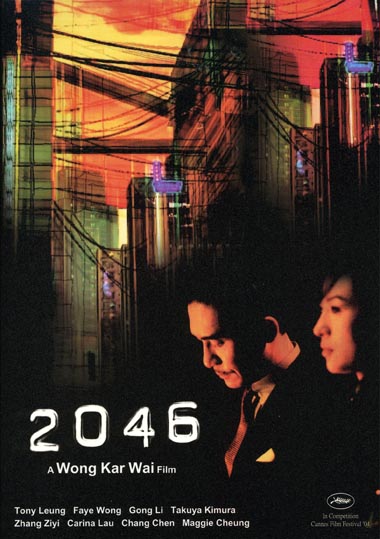
WKW's
Chungking Express and Fallen Angels presents life as a radiant neon blur - a world
of hyperreal clarity broken with interludes of pixelated slo-mo noir effects.
His pastiche of cerebral pop abstractions is an appropriate and distinctive reading
of his people, his place, his time. His movies are gloriously self-referential,
full of tributes to his childhood influences, attuned to a post-modern and post-colonial
nostalgia. The voiceovers delivering cute epithets and setting up plot coincidences
have been labeled 'contrived' and 'childish' by indignant critics, obviously not
accustomed to art treating its subject so lightly, so naively. It is, quite simply,
a lack of cultural understanding on their part - a blinkered recognition of only
what reflects themselves and their culture. Wong
Kar-Wai and the West - Eugene Chew | The
Wong Kar-wai Collection | |  | As
Tears Go By - Wong Kar-wai: As Tears Go By is the pure `Ah Fei' offering from
Wong Kar-wai. Stephen Teo writes that you take one part Scorcese's "Mean
Streets," and you add one part Jarmusch's "Stranger than Paradise"
(Teo 16) and you have one heck of a Triad film.
A triad sibling Wah (Andy Lau)
has his little brother Fly's (Jackie Cheung) back. Fly is constantly in trouble.
Added to the mix is Wah's cousin Ngor (Maggie Cheung) who needing a place to stay
while getting a checkup at the local hospital stays in his flat. The Wah and Ngor
mysteriously fall in love - sort of that charm of the bad boy business. However,
in order to get anything on with Ngor, Wah needs to settle up for the ill will
accumulated by Fly. That is the short of it.
Being Wong Kar-wai's first film
- it is understandable that he has not reallly developed his oeuvre. Andy Lau,
convincingly played a triad brother, reminds one of the dysfunctional characters
that Wong cultivates. One would not know it if one's entry into the labyrinth
of Wong Kar-wai is through this movie but I guess this movie lays the framework
for his adherence to genre in an effort to belong. Maggie Cheung is stunning.
She will eventually develop into the forlorn lover in later movies like "Days
of Being Wild" and "In the Mood for Love" and Jackie Cheung, plays
the never do well `Ah Fei' who is destined to bite it.
Difficult to get too
deep here but according to Stephen Teo we really do not see the promise that Wong
Kar-wai eventually delivers. I have to disagree. I think, to some extent, we do
see the promise that Wong-Kar-wai brings to cinema - the dark brooding characters
who all too often defy time and identity are beginning to show themselves in this
movie. The trick is to move forward from here to open new spaces of consideration
in a movie world so eager to adhere to codes and rules that exemplify genre or
worse formula. Kudos all around.= | | | Days
of Being Wild - Wong Kar-wai: Contrary to other reviewer's notions of the
film, "Days of Being Wild" does have a plot. The movie is a tale of
existential angst. Stephen Teo places the movie in the area of quasi gangster
cum romance. In short "Days of Being Wild" is, in the tradition of "Rebel
without a Cause" an `ah fei' movie - a story of lost youth. A large portion
of the movie centers on dysfunctional relationships and each and every character's
existentialist angst. A really short synopsis follows. The movie is set in 1960s.
Leslie Cheung plays the lead character of Yuddy - a self destructive narcissist
who constantly hurts women.=
In this movie,
much like "Ashes in Time" the target of his self destruction is Su Lizhen
(Maggie Cheung). As previously stated, the film centers on the youthful, Yuddy,
who learns from the drunken ex-consort who raised him that she not his real mother.
Yuddy's real mother has left him in her care and moved to the Philippines. Much
of the story is situated around Yuddy's need to go to the Philippines to see his
mother. I would assume that the lack of connection to the mother is part of the
motivation for Yuddy's `early object loss' and hence his inability to connect
with either Su Lizhen or Lulu (a character who will show up again in 2046). Yuddy's
"auntie," hoping to hold onto him, steadfastly refuses to reveal the
name of his real mother. The revelation, predictably, unsettles Yuddy to his very
center, unleashing a cavalcade of irreconcilable emotions.
Two women form the
two pillars of Yuddy's existential angst and not surprisingly have the bad luck
of falling in love with Yuddy. Similar to Tomas - the main character of Milan
Kundera's "The Unbearable Lightness of Being" Yuddy cannot settle down
and is stuck (at least in his head) in the liminal space of both/and. Yet, the
reality is that he is trapped in the world of either/or and not both/end. Just
as Tomas cannot have Sabina AND Teresa, Yuddy cannot have both Su Lizhen AND Mimi.
Both are beset with choices.
On the one hand, we have Su Lizhen (Maggie Cheung)
who works at a sports arena selling refreshments at a kiosk. On the other hand,
juxtaposed against Su Lizhen's `plainness' (if we can ever call Maggie Cheung
`plain') is the persona of the glitzy showgirl Lulu or Mimi. It is clearly `early
object loss' that leaves Yuddy cold. As Lizhen slowly intimates her deep hurt
over what is happening to her and Yuddy to Tide (Andy Lau), Tide begins to fall
for her. The same, it is argued, might be said for Yuddy's Sancho Panza - Zeb
(Jacky Cheung). Zeb find himself falling in love with Lulu. Yuddy learns of his
birth mother's whereabouts and heads out to the Philippines. In the Philippines,
he meets up with Tide and they encounter thugs who - not impressed with the `ah
fei' Yuddy, well, do him in. The last minute appearance of Tony Leung seems like
a setup for the next movie... too bad we have not had the pleasure... yet?
The
movie may be all about Leslie Cheung but we should not forget the performances
of Maggie Cheung, Carina Lau, Andy Lau, Jacky Cheung, and Rebecca Pan. Despite
the characters circling around the Yuddy character - each brings a dimension of
their own into the movie. The strength, it is often argued, of Wong Kar Wai's
movies is his highly developed (or undeveloped, yet very deep) characters.
Par
for the course, just like all his other movies, "Days of Being Wild"
is visually stunning. Working with Christopher Doyle, 1961 Hong Kong comes to
life. As a Filipino abroad, I could not help but feel nostalgic when the movie
shifted to the Philippines. I know that 1960s in the Philippines was one filled
with cars and urban centers and not only the lush jungle scenes that fill the
mise-en-scene. Who cares... it is only a movie and a good one at that. The movie
draws from all angles for its greatness - the characters, the acting, the mise-en-scene,
the cinematography, the whole ball of wax. The movie can be analyzed on many levels
and I fail to do that here. However, on one level, like voyeurs we watch Yuddy's
self destruction and enjoy the cathartic element of the `ah fei.' Bravo Wong Kar
Wai! One more movie please! | | | Chungking
Express - Wong Kar-wai: Who said Quintin
Tarantino could not pick them? This movie, part of his collection of videos that
form part of his collection is a visual stunner. Forged around an unconventional
approach to romance, Chunking Express is really not the kind of movie you watch
one time then walk away. Much like The Vertical Ray of the Sun, I was left stunned
and wondering what I had just experienced. Anyway, I highly recommend it for its
almost Trainspotting quality - the pace that is. Enjoy it - I did. | | | Ashes
of Time - Wong Kar-wai: The movie is a wuxia movie with a twist. That twist
is what makes Wong Kar Wai the celebrated director/filmmaker that he is. Wong
Kar Wai sticks to genre and then takes it to the next level by doing what he does
best, breaks it down - and uses his highly idiosyncratic style of cinematography.
The movie is very loosely (and I mean very loosely) based on Jin Yong's "The
Eagle Shooting Heroes." So loose in fact that one could argue that this movie
is neither a wuxia movie or based on the book. Ouyang Feng (Leslie Cheung) is
a disillusioned swordsman for hire. He left White Camel Mountain to run an inn
in the desert. Ouyang Feng's real business is to serve as a middle-man between
mercenaries and those who need them. He is all business. Among those who come
into his space are Huang Yaoshi (Tony Leung Ka Fai) - who is involved with Feng's
former love interest, Murong Yin/Murong Yang (Brigitte Lin) - being one and the
same, she both loves and hates Huang Yaoshi. Others include a blind swordsman
(Tony Leung Chiu Wai) who wishes to see his love and home before he finally loses
his site. The couple, of sorts, that defy explanation is the combination of the
blind woman played by Charlie Yeung and the character Hong Qi (Jacky Cheung),
a swordsman who comes to her aid. To top that off, we should not forget the moving
performances of Carina Lau and Maggie Cheung - without whom this picture would
not be complete.
Stephen Teo argues that it is Kar Wai's characters that make
his movies. In a move that follows "Days of Being Wild," it is the characters
that show up for the smallest amount of time that leave a lasting impression.
In the case of "Days of Being Wild," the last minute appearance by Tony
Leung is arguably his best. In "Ashes of Time," Maggie Cheung shows
up for only for a few minutes but she impacts all of Leslie Cheung's character.
Carina Lau's character (and hands) is stunning - enough said.
"Ashes of
Time" is a wild movie about love, desperation, and forgetting. Wong Kar Wai
is better known as a director of art house films such as "Days of Being Wild"
(available on Amazon.com) and a later movie - and my personal favorite - "In
the Mood for Love" (also available on Amazon.com). His trademark style of
seemingly freeform story telling and inventive imagery are deftly combined with
Christopher Doyle's cinematography to produce this masterpiece. "Ashes of
Time" is Wong's only wuxia movie to date. In it we find, I argue, his most
developed characters and sense of experimentation. Certainly recommend it to those
wuxia fans out there... but don't expect the clean story lines of Crouching Tiger,
Hidden Dragon or House of Flying Daggers... this one is messy and that makes all
the difference. | |  | Fallen
Angels - Wong Kar-wai: One thing is for sure - it is everything you have seen
before and nothing like anything you have seen before. As a Wong Kar-wai junkie,
I have to admit - it is getting harder and harder to find a favorite - Fallen
Angels is among the top three. In one sense I really loved Fallen Angels because
it is full of the same urban angst brought up in Chungking Express. There is something
utterly and strikingly gorgeous about Wong Kar-Wai's movies. The mise-en-scene
and backdrops his characters inhabit in that give each scene a particular almost
brooding feeling. Wong Kar-Wai's are lost and lonely in a world that is dark and
full of despair. Fallen Angels is no different.
Fallen
Angels' Hong Kong is alive in the evenings. One could argue that the cinematography
captures a dreamlike state, pure urban neon, and erotic. In Fallen Angels we travel
the gritty back alleys (reminiscent of Chunking Express) into underworld dives,
dreary dive bars juxtaposed against a brightly-lit McDonalds. I have to say this…
Wong Kar-wai does somewhat put me off with his product placement - but we have
to finance our projects somehow, I guess.
Leon
Lai's is a lazy hired killer. His portrayal, it can be argues is weighty and conjures
up a sense of gaudy (almost caddy) persona. I am reminded of Yuddy in Days of
Being Wild. Lai is wonderful as a contradiction of apathy and poetry. Lai plays
it with a languid air. Every move is deliberate - smooth.
Conversely,
Michelle Reis' is his doppelganger - his manager. She is obsessed with him, becomes
emotionally attached to him. I would argue that a sense of betrayal set the stage
for the hit man's final demise. A nighttime ride in the back of a motorcycle with
He Zhiwu (Takeshi Kaneshiro) leads me wonder is she has comes undone.
Love
though, and its many forms of cruelty is a recurring theme with Wong Kar-wai.
Oh that sweet betrayal… He Zhiwu is a potent character. The relationship
He Zhiwu develops with his father is proof positive that even in the broken world
of dysfunctionality there resides a lotus from the marshes. The videotape sessions,
at first almost humorous, forms yet another center of love shattered - sometimes
we need to really treasure what we have lest it slip by so suddenly… he Zhiwu
is a symbol of the lyricism of youth.
One
has to admit, even after Chunking Express, Fallen Angels is different from any
Hong Kong movie. Driven by inner monologue (much like the later much acclaimed
The Follow from The Hire series) it draws one in. The languid tone and deeply
erotic tale is one that will stand the test of time. Fallen Angels according to
Teo takes over from where Chungking Express leaves of. I argue that it brought
Chungking Express to a whole new realm. Fallen Angels is Chungking Express on
steroids. | |  | Happy
Together - Wong Kar-wai: I come into the discourse of Wong Kar-wai a bit late
in the game. Seeing "Happy Together" after having seen "2046"
- well it totally skewed my viewing. I saw in the last scene - the cityscape scene
- the start of "2046." To be perffectly honest, I am not surprised that
Wong Kar-Wai received the Best Director award at Cannes in 1997 for "Happy
Together." "Happy Together" is a story of the relationship between
two homosexuals set in Buenos Aires - but just like all Wong Kar-wai movies it
is also about more than just a straight up narrative. In this movie - as we do
with others of Wong Kar-Wai oeuvre we are beset with musings of the hopeless romantic.
Wong
Kar-Wai zeroes in on the relationship between Lai Yiu-Fai (Tony Leung) and Ho
Po-Wing (Leslie Cheung), acting like a typical married couple, a point of view
that most viewers should be able to relate to - whether gay or straight. Lai and
Ho are ex-pats stuck in Buenos Aires. After an ill-planned attempt to see the
Iguazu Falls - they drift apart. Lai becomes a doorman at a tango club, where
he exists from hand to mouth. Lai's wages barely allowing him to live in his claustrophobic
flat in a rundown building. The mise-en-scene is one of the most striking signatures
of Wong Kar-wai. The claustrophobic cityscape is played out in "Days of Being
Wild," continued in "In the Mood for Love," and culminates aesthetically
in "2046." Ho, conversely, sells himself out as a gigolo, making a living
as a sycophant in a series of one-night stands. After finding Ho bleeding on the
street, beaten up by a trick gone badly, Lai takes Ho back and takes care of him.
The spirit of Iguazu is always a looming presence with the tacky lamp.
Happy
Together exemplifies the hallmark signatures of Wong Kar-Wai's. The black and
white strategy is inexplicably wonderful - it had me at hello. The story, rather
than being plot-driven, is theme-driven, with many layers of interpretation. The
characters are (as usual) a juxtaposition of existential issues writ-small. The
contrast between Lai and Ho is on one level the more obvious tension that Wong
sets up. Lai is the more reserved and arguably the more "maternal" of
the two. Stephen Teo makes the argument that contrary to public opinion, this
movie is not a re-enshrinement of Leung's masculinity. I agree with Teo in that
the taking in by Lai and caring for Ho is affirmation of Lai's "femininity."
Hard to figure what was going through Wong Kar-wai's head when he did this but
it seemed like a conscious attempt to reify in our mind the homosexual persona
of Lai. We already know that the late Leslie Cheung was an open homosexual - which
somewhat already informs our watching of him. Conversely, it is the strong heterosexual
persona that Tony Leung has cultivated that somewhat hinders believability. But,
for the movie's sake I believe. Lai is haunted by his thieving past. Ho, the more
aimless of the pair - is not saddled by memories - time is not an issue with him.
Harkening back to his role in "Days of Being Wild" - he is once again
self destructive - Yuddy but homosexual.
"Happy Together" is unfortunately
not my favorite Wong Kar-wai movie. However, having said that it is arguably my
favorite Wong Kar-wai film in terms of its cinematography. It captures for me
the inner city struggle that my favorite "In the Mood for Love" could
not. Since "Chunking Express" was a lighter film - it did not have that
same impact on me as this did. The movie is perhaps the straighter in terms of
narrative with the usual existential angst and the usual very, very stylish-camera
work. In terms of its angst and desperation examination, I have to but it up there
with the pantheon of favorites. Bravo! | | | In
the Mood for Love - Wong Kar-wai: This is perhaps the sexiest movie ever made
- ironically, there is no nudity. Kudos alll around to Wong Kar-Wai for delivering
this movie classic; wondering why he reversed himself by releasing 2046, which
is the exact opposite. Wong Kar-Wai sends us on a tailspin by using the camera
to do his work for him instead of using lurid exploitation scenes.
Yearning
and possibility is one of the great emotions of the human experience. Perhaps
I was seduced by the very thing that has driven poets to write sonnets, artists
to create great works of art, and musicians to wrench our comfort. It is a feeling
that almost everyone who has not been, should be touched by, either through unrequited
love or the deep pain of strong emotions that can not be fully expressed - by
word or otherwise. Hong Kong movie maker Wong Kar-Wai, whose resume includes such
great features as Chungking Express and Happy Together, has a deep understanding
and pathos turning this insight into the mise-en-scene of longing and an unexplainable
sexiness that does not just come from the panning of Maggie Cheung but the tension
set forth by not being able to just do what one feels like doing. In this feature
(as opposed to 2046), Wong Kar-Wai brings to presence a transcendence that cannot
be copied by any other film. In the Mood for Love is a classic as he brings to
presence that deep sense of longing so missed in current offerings.
The plot
is uncomplicated. War Kar-Wai is pure genius as he takes the time to detail the
scenes as the whole movie takes place in 1962 Hong Kong, were Tony Leung (Chow)
bumps into Maggie Cheung (Li-Zhen) where by some twist of fate end up next-door
neighbors in an apartment building. I don't believe that it is just an excuse
to place two good looking people together but rather it is a modality to set up
the scene to explore veiled emotions and cloaked feelings. They are two struggling
characters - he a journalist; she a secretary. The two develop a close friendship,
and the link between them develops into something deeper and more lasting than
a casual affair. Limited by cultural oppression and feelings of profound guilt,
and this is where I feel the film is sexiest, they never act upon those physical
impulse. Mind you, don't get me wrong, I am not an advocate for love going unrequited
but the scene of self-denial and the closeness as well as the tension lends itself
to such a reaction. Both Chow and Li-Zhen remain true to their marriage promise
despite the cost to themselves.
Irony all around - despite the fact they are
not doing anything wrong, they both engage in stolen whispers, longing looks,
and clandestine meetings. Craving smothered by decorum. Wong Kar-Wai's absorbing,
mysterious In the Mood for Love is a power play in desire and denial. It is the
sexiness of the tension that is played out only in the mind and not in the flesh.
The film inhabits that liminal space of promise - which is why I was so taken
by it. It is artistic because we are left to imagine what is possible and what
is not, see why things that are suppressed and why they should not be. Not to
mention that Wong Kar-Wai weaves an erotic web around two of Hong Kong's most
exciting stars, Maggie Cheung and Tony Leung Chiu-Wai, then lets us the audiences
write or imagine our own story. Bravo to Wong Kar-Wai and the Criterion Collection
for making this possible. | |  | 2046
- Wong Kar-wai: Director Wong Kar-Wai'ss oeuvre hits a form of culmination
- if one can say that these things come to some sort of end - in his dazzling
movie 2046. This is classic Wong Kar-wai with a twist. We get the usual picture
period sets (complete with detailed costuming), purposely orchestrated atmospheres
or mise-en-scene, unhurried shots, the perfunctory glam cigarette smokers, soft
light and to some extent film noir pretension. Teo calls Wong Kar-wai the "Auteur
of Time" and 2046 is nothing short of rumination and contemplation on memory/time,
sexiness/non-contact, love/loss, and incompleteness which are the hallmarks of
Wong Kar-wai. Contrary to what other reviewers might allude to this movie does
not surpasses (much less "transcend") "In the Mood for Love."
Wong
Kar-wai, in order to be fully appreciated has to be watched many times - and this
movie is no exception. Multi-layered and non-linear, 2046 seems - at least on
one level the celebration of Zhang Ziyi. The movie follows the adventures of Chow
Wo Man (Tony Leung), a writer of science fiction novels. Chow focuses on a future
year 2046 (that according to Stephen Teo alludes to the 50 year anniversary of
the turnover of Hong Kong) a "space" where memories are suspended.
The
film's opening scene is reminiscent of Wong's masterpiece "Happy Together."
A scene that captures the impersonal nature of cityscapes with lives intertwined
but not really. The look is cross between "Blade Runner" juxtaposed
with 1960s Hong Kong. Chow writes from a hotel room, and engages in relationships
with a series of beautiful, complex women - and what a set of women at that. Where
else can you get a powerhouse set like this together: Tony Leung Chiu Wai, Takuya
Kimura, Zhang Ziyi, Li Gong, Faye Wong, Carina Lau, and Maggie Cheung - to name
a few. The film journeys to Singapore but only in the progressively more mysterious
hallways of the Chow's memory.
2046 constantly
rejects the neat story summary (which is my excuse for being all over the place)
with its disjointed and at time meandering plot construction. However, coupled
with Wong's luxurious cinematography and astounding techniques, it is as fluid,
associative, and Kafkaesque labyrinthine as memory itself - and it works. Transitioning
between deftly detailed realism and sumptuous, expressionistic allegory, the movie
is a deeply intoxicating experience. Even given its all over the place, oftentimes
chaotic story, 2046, I have to admit, creates a (as usual) moving, emotionally
stimulating, and richly gratifying experience.
In
short, it all about being an "artsy-fartsy" movie! The usual suspects
of soliloquy of sorts to love affairs, love spats and yes, the perfunctory heartbreaks
are always a hit with me. Does Wong Kar-wai run the risk of creating his own "formula?"
Who knows, eh? Until people get tired of his Kunderaesque fortuity then we will
just keep trooping to his movies. It is a "no brainer" that one gets
easily caught up in this film's late '60s mood and texture. It demonstrates the
timeless quality of Wong Kar-wai's movies.
I
can't really leave this exercise without making comment on the actors. The movie
was nothing short of eye candy - even the women made comment. Tony Leung Chiu
Wai, who played the lead "cool cat" is somewhat related yet somewhat
removed from the character that he developed in "In the Mood for Love."
Zhang Ziyi was well playing Zhang Ziyi - that mousy, come hither, persona that
made her famous. Wong Kar-wai has to be recognized for bringing this powerhouse
case together. The problem I had with the movie - here goes: For the average viewer,
well they will walk away - much like they did with classics like "As Tears
Go By" and "Days of Being Wild" will walk away saying "I just
didn't get it." This is not "In the Mood for Love" and perhaps
if reviewers like me stop trying too hard to make the connections we might just
really be able to enjoy ourselves.
2046
is a "human relationship" movie. But there is moreover somewhere in
the movie a vision - that includes androids - complete with tears postponed -
that really touches us about what falling in love is like. 2046 dabbles in things
like devotion, perhaps. It made me pause to think of a future where the simulacra
looks like the real thing. For the complexity, the juxtaposition, the poignant
look at love - I will be dragged in kicking and screaming to watch this movie
again... and again. Not to mention that I was lost in the switches between the
future (2046) and the past (1960s) or was it really all just one jumbled mess. | |
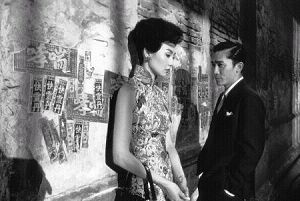
| | The
Maggie Cheung Collection |
| 
| The
Soong Sisters ~ Maggie Cheung: Provocative and moving are few of the words
that come to mind after having viewed this movie. As a short synopsis, The Soong
sisters are a troika of daughters of Charlie Soong. Soong created and nurtured
a political dynasty in China. The Dynasty, at least as far as the movie is concerned
is nothing short of having reached the highest levels of power. As mentioned previously,
this movie follows the lives of the three Soong sisters. Educated in America they
returned to China to sit and live alongside arguably three of the most influential
personalities of transitional China. First, Ai-ling marries a powerful businessman.
Second, Ching-ling marries Sun Yat-sen, the revolutionary founder of modern China.
Third, May-ling marries the Generalissimo Chiang Kai-shek, China's leader during
World War II and modern Taiwan's founder. Undoubtedly, all three women exert a
profound influence on China. In this gripping historical "docudrama"
we move away from the vogue practice of looking at "little people" and
focus, big-time, on the big people - and it does not get any bigger than these
folks.
I have to admit to having approached this film with some doubts. I hate
to admit this too but what really drew me to the movie (and Yes, I did change
my mind about it after having watched it - it is deep) was the eye-candy: Michelle
Yeoh, Maggie Cheung, and Vivian Wu are not difficult to stare at - even for 2
and half hours. However, as I got into the story - not to mention Maggie Cheung's
stunning performance as Madam Sun - I was instantly converted.
As a novice
in Asian Studies - I will need to dig deeper as I am not familiar with the factual
accounts and influence of the Soong Sisters. I can neither verify nor argue the
veracity of the movie - but I would certainly urge all those interested in the
topic to watch it. Inevitably, the movie will be compared to Bertolucci's "The
Last Emperor" where there is an attempt to bring to life the narrative of
Qing Emperor Pu Yi. The link is Vivian Wu. As far as the movie is concerned -
Sun is the great conciliator while Chang Kai Shek is the great destroyer. Maggie
Cheung is amazing as Ching-Ling wife of Sun Yat Sen. She had the hot hand and
run with it. The perfunctory close-ups of Cheung show she is only getting better
with age. She is still the Cheung of such classics as "Days of Being Wild"
and "As Tears Go By." Vivian Wu - well the jury is still out on that
one. I will need to see some actual shots of Madame Chiang to see how well she
did. Nonetheless, it was not difficult to stay riveted to the screen with her
and Michelle Yeoh around.
The one main criticism is that the story had a weak
ending. Moving to the standard documentary rehash - well, in my humble opinion,
it could have closed better. It deserved a better ending. As a tool for pedagogy,
"The Soon Sisters" ranks along side such classics as "The Last
Emperor" and "To Live." Bravo! | | The
Heroic Trio DVD ~ Maggie Cheung: Somebody is abducting infant boys in the
metropolis and law enforcement is remiss to explain why. As we quickly discover
it ends up being a Dark Master of the sewers. One of the kidnapped boys is to
be selected as next emperor of this half-world and the rest will be terminated.
In this very popular Hong Kong action movie about a trio of fighting females overcome
their own ghosts and differences and join forces. As the jacket of the DVD explains,
the police have use of the services of Shadow Fox (Anita Mui), Mercy (Maggie Cheung)
and Michelle Yeoh (Invisible Woman) to stop the evil beast.
Shadow Fox (Anita
Mui), and so happens to be married to police officer Damian Lau. In times of crisis,
she changes to her alter ego Shadow Fox and patrols rooftops. Conversely, Mercy
(Maggie Cheung) - short for Mercenary, is - as the name suggests - a killer for
hire. Invisible Woman (Michelle Yeoh) starts out in the movie as the slave to
the Emperor of the Underworld adding complexity to the composition of The Heroic
Trio. This all-star trio of crime fighter, killer for hire, and lackey come together
to form a tenuous yet effective bond.
From Ching Siu-Tung comes a great action
movie. Hong Kong action films do not stray too often from the formula of the three-babes
and it does not seem to be dying out anytime soon. Along the same lines such films
So Close and Naked Weapon (both also available on Amazon.com) also take the formula
and run with it. For anyone interested in this genre those are tow other movies
to purchase. The Heroic Trio detours in the end to a strange Terminatoresque -
which you will need to watch the movie to figure out, that's far from necessary
- but makes it nonetheless entertaining. I can't get enough of wirework films
so for all those HK film enthusiasts - this is keeper. |
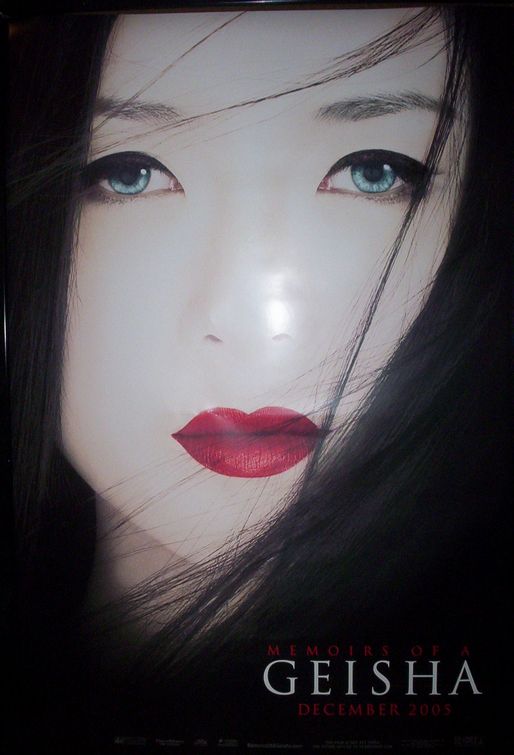
| The
Zhang Ziyi Collection |
| |
Hero DVD ~ Zhang Ziyi/Jet Li
: Hero is spectacle. Cleverly crafted
around 3rd Century B.C., when China is separated into seven warring kingdoms.
The Kingdom of Qin is the most resolute of all, its ambitious King (Chen Daoming)
fixated on uniting China and becoming its first emperor. Reminiscent of The Emperor
and the Assassin (also available on Amazon.com), Hero brings a different flavor
to the mix. In this rendition there are three assassins that conspire to assassinate
the budding Emperor. The King of Qin lives with everyone at entire kingdom hall
lengths, as he is the target of some of the most famous assassins including: Broken
Sword (Tony Leung), Flying Snow (Maggie Cheung), and Sky (Donnie Yen). The King
offers a `kings ransom' rid him of the threat of the three assassins. Out of the
woodworks comes Nameless (Jet Li) who mysteriously is able to do what no one in
the past has - kill all three assassins. Out of the success in defeating all the
King's enemies, Nameless is granted an audience with the King, to explain is success.
The King listens patiently to Nameless' rendition of the story while the King
remains cynical and eventually comes out with his own version of the story. Interesting...
Hero is nothing short of a cinematic triumph. There is the inevitable comparison
to Crouching Tiger, Hidden Dragon - primarily because of the union between the
two via Zhang Ziyi - who in this movie plays Moon. Folks should be looking at
the foreshadowing of Hero by Zhang Yimou through Ju Do (also available on Amazon.com)
- where the exquisite use of color, lightinng, and fabric is similar. Closer look
at the movie will reveal that each section, set of scenes is color themed - lots
of fundamental colors - lots of black, red, and brown. In the fight scene between
Flying Snow and Moon, in marked distinction from their environment the anachronistic
red robes are in stark contrast to the background of a yellow and browns of the
forest. Zhang Yimou brings a wide range of experience from his early work to the
mix - in films like Ju Do to create Hero and deserves an Academy Award nomination,
at least. Hero is one of those movies that one does not tire seeing over and over
again. The fractured narrative almost compels you to do so. Moreover, while one
misses the spectacle and color because one is trying to get a grip on the story
line - everyone needs a home copy to review. |
| 
| The Road Home
~ Zhang Ziyi: More than anything, The
Road Home is a story about understanding. More often than not, someone comes up
with a seemingly irrational request - but a deeper examination of the reasons
behind such a request leads one to a deeper understanding. This form of research
celebrates the one thing that makes us human - our sense of place. The movie,
although set in rustic China, has universal implications. A son comes back to
his where he grew up to assist his mother with funeral arrangement for his recently
deceased father. What follows is a flashback that is a tale of devotion, tradition
and love. There is nothing complicated about the plot, the movie is 95 percent
Zhang Ziyi and the ephemeral Chinese countryside. What is focused on though, is
what makes the story different. When Luo Yusheng (Sun Honglei) comes back to his
village, he discovers his aging mother overwhelmed with anguish over the sudden
death of her husband - who has been till then, her constant companion (we do not
find out about this until later). His mother insists the son and the village arrange
that traditional funeral so her husband can take "The Road Home." The
village mayor and the son exchange practical consideration, which effectively
convinces the viewer that this is not a very practical thing to do. However, as
we get into the story we figure out why it is essential that we follow the mother's
request. The shift to the black and white footage is pure genius. As mentioned
previously, Zhao Di, (Zhang Ziyi), is the young mother who falls in love with
the recently arrived teacher Changyu (Zheng Hao). The movie can tell the story
by itself. This temptingly pastoral experience does, on occasion, border on the
sentimental. However, the significance of taking the road home give one hope that
somewhere we can all find our sense of place - our own road home. |
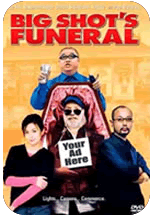 | Big
Shot's Funeral ~ Ge You: is an intelligent satire. The movie is both
a satire of American media values or of an encroaching capitalist mentality within
Communist Chinese society. The film stars an impressive lineup with Rosamund Kwan,
Ge You, Ying Da, and Donald Sutherland. The film is multi Layered. Some of the
layers include issues relating to East meeting West, and as mentioned earlier
it is also a parody of Commercialism and the movie explores the line between artistic
integrity versus selling out.
Director
Feng Xiaogang is one of mainland China's most successful filmmakers. His movie
Tianxià Wú Zéi [A World Without Thieves] recorded a whopping
¥100,000 in box office on its premier night in Beijing. It is claimed that
within ten days of release the total box office in Mainland China exceeded ¥80
million. This figure ultimately rose to ¥100 million on the last day of 2004.
This is considered a milestone in the Chinese film industry. He has just come
out with a new movie called The Banquet and is working on commericals for the
upcoming Olympics. Why there is little, if any, attention paid to his work is
beyond me. My sense is that with his new entry into the already crowded Wuxia
world with The Banquet - a line up that includes such notables as Zhang Ziyi,
Zhou Xun, and Ge You... he will be considered into the pantheon of Chinese cinematic
giants that includes Zhang Yimou, Ang Lee, and Chen Kaige.
With
regard to the east meets west angle, director Tyler can't seem to get into the
"mind" of the emperor - which is a show of western perception and a
parody on the remoteness or a re-articulation of western Orientalist narrative.
Feng runs the risk early of caricaturing Tyler as the representation of the West
and Ge You the east and Lucy in that liminal space in-between. In the pivotal
scene with Ying Da Lucy is addressed in English as it is the polite and tradtional
thing to do. She is not seen as "Chinese." Arguably not his best use
of Ge You who is featured in all his movies.
Despite
the movies creative and fresh angles, the Da Wan (Big Shot's Funeral) falls as
a movie when: A "bond" develops between Tyler and Yoyo... I don't really
feel it. There also seems to be no chemistry between the tentative Lucy (Kwan)
and the awkward Yoyo (Ge You)... nonetheless, I recommend it highly if just for
the comic value.
This is a joint Chinese/Hong
Kong Co-Production. My sense is this is a signal, that may have been sent already,
that a sense of Pan-Chinese Language setup is afoot. Its deep, this movie, like
a Velasques painting... it is reflective about the changes occuring in the mainland...
economic changes impacting values and society. |  | Koma
~ Angelica Lee Sinje: Koma is a psychological
horror thriller from Hong Kong which seems from the outset to try to appeal to
a more international market. It might be cliché at times as the movie shifts
focus from character to character; it does tough effectively keep you on the edge
of your seat.
Koma opens with wedding reception where inebriated Ching (Angelica
Lee Sinje) chances upon the victim of a kidney removal operation - kidneys being
a theme in the movie. In more ways than one, it is a wake up call.
In the frequent
trips to the toilet and references to her numerous nausea spells the viewer rapidly
ascertains are symptoms of her malady: a kidney disorder. The kidney disorder
is an interesting subtext. Ching has issues with her body and has difficulty with
her nakedness in the presence of her boyfriend, the unnamed MD boyfriend (Andy
Chi-On Hui). She blames herself for driving him to the needy and dysfunctional
arms of medical student (and soon to be best friend) Suen Ling (Karena Lam).
Ching
sees Ling (in the opening scene) who happens to be at the scene of the crime.
Enough said about the plot - the viewer will just have to figure all the rest
out by him/herself. The kidney issue reminds one of Sympathy for Mr. Vengeance
- but that is where the similarity ends. Boody parts and the acquisition thereof
seem to be all the rage in Asia Extreme movies.
Most of the movie takes place
in the Precious Blood Hospital (Canton) Renal Dialysis Centre and the Kidney Education
Centre's Research facility giving the movie some street credibility in terms of
its medical leaning. For my money, best to stick to the storyline rather than
hope for medical accuracy; for that, the viewer would be better served in this
area in a movie like Vital (2004).
It would behoove the viewer to stick to
the more important issue of character transformation. Ching finds her "strength,"
Ling finds some form of "redemption/atonement," and the unnamed boyfriend
- gets, well - you just need to watch to fiind out. The edgy "slices"
into the side where the kidney is located certainly beats out mass gore ala Texas
Chainsaw Massacre - it does indeed get under your skin and stays there one almost
feels the slices.
Personally, I thought the movie to be both entertaining and
clever - the plot twists giving way to a more interesting movie than lessons in
anatomy and gore. |  | Pillow
Book ~ Vivian Wu: Pillow Book is a surreal, highly sensual, and thought provoking
movie. With an almost unreal quality I began to ponder the possibility of the
movie. Vivian Wu captures the audience her more than in the "The Joy Luck
Club" and the "Soong Sisters." Those of us in the west never stop
to consider the aesthetic quality of our letter - our writing. Notably, calligraphy
is the subject of many movies. For certain, not many have taken Peter Greenaway
approach. Greenaway fused the pleasure of literature and the flesh like never
before. I am almost reminded of In the Realm of the Senses... almost.
Nagiko
is at the center of the movie. Nagiko is Japanese-born fashion model with a passion
for calligraphy, physical pleasure, and revenge and not in that order. Nagiko,
as a child; her father - played by Ken Ogata, a calligrapher, body painter on
his daughter a blessing on her face and neck every birthday. Nagiko learns that
her father, to get published, he has to surrender to homosexual relations with
the publisher - played by Yoshi Oida. This same publisher arranges for Nagiko
to marry a cruel man who views her as object. Nagiko eventually flees Japan for
Hong Kong, where she jettisons to a whole new life.
Like In the Realm of the
Senses there was no shortage of full frontal nudity. Vivian Wu (Soong Sisters,
The Joy Luck Club) and Ewan McGregor (Trainspotting) for the better part of the
movie are without any clothes on. No matter what though, even with the staid poses
the movie seemed highly charged and very, very erotic. The pictures-in-pictures
technique is one that is rarely seen but also extreme successful. Another bit
that needs to be mentioned is the fusing of the Japanese and Chinese cultures
- almost making the movie a regional ratherr than a local movie - one can't help
but find that exploration fascinating. The color bleeding into black-and-white
posed yet another intriguing visual technique. All the scenes seemed larger than
life - Greenaway has a curious way of elevating what on the surface is everyday
to moving it into a realm of event.
Reference to the Pillow Book is setup when
Nagiko's aunt would read her shorts from the Pillow Book of Sei Shonagon - the
1000-year old diary of a courtesan. While in Hong Kong, Nagiko decides to write
her own pillow book - not on paper, however, but rather on her body. Nagiko's
we learn rather early on is on a quest is for the perfect lover/calligrapher combo.
Jerome (Ewan McGregor), after a long search proves to be her artistic match, and
also offers the route ala Dumas' Count of Monte Cristo to wake up a long-dormant
plan of revenge against her father's cruel and unfeeling publisher.
Despite
all the criticism, whatever the shortcoming of the film it is something we have
seen before and nothing we have never really seen before. The great incongruity
of this film, which is (at least on the surface) about the power of writing, is
that the words take the back seat to the visual feast. The camera becomes the
medium and the message. | |

| So
Close DVD ~ Shu Qi: In So Close sisters
Lynn and Sue (Shu Qi and Vicki Zhao respectively), are a pair of high-tech (and
high priced) assassins who inherit, from their late father, a secret weapon: a
satellite based surveillance package called World Panorama. World Panorama allows
them to hack and use any closed-circuit camera system worldwide. Predictably,
or there would be no movie, their current job has its share of complications.
Chow (Deric Wan) hires the duo to assassinate his brother in a corporate takeover
bid. To add spice to the mix, Hung (Karen Mok) completes the trio of beautiful
(and strong) women as the creative but misguided detective investigating this
case. There is a tinge of a homoerotic subplot between Hung and Sue that arguably
does not satisfy on any level -- but let us not let it detract us from the action
scenes, cinematography, and almost impossible high tech wizardry. The character
of Lynn, conversely, is pulled in another direction.
Lynn is involved old
love Yen (Song Seung-Hon), which makes her re-examine her chosen vocation. Lynn
decides she wants out but there are, of course, complications. Sue, not having
had any experience doing anything else and eager to prove herself to Lynn sets
out to complete the contract -- which Lynn asked her to cancel -- on her own.
Not to do a spoiler here but to Lynn's credit she has been protecting Sue from
that side of the business in an effort to protect her from possible future guilt.
I guess I can indulge in a little bit of cynicism here -- as being an accomplice
would not give Sue night chills -- I need to constantly remember -- it is light.
In a move that reminds of the Last Samurai (too many mind) leaving the trade might
not be that easy for Lynn after all. For what impact that has on Lynn -- you will
really need to watch the movie.
Okay, let us keep focused on the movie's plus
side -- the action is entertaining. It has the predictable wire-work that Hong
Kong action films are famous for. There is a ton of slow-motion as well as fast-cutting
action thrown in the mix. I agree with some out there that arguably the most creative
scene comes about halfway through the movie, when Hung finally meets the Lyn and
Sue in an elevator. The bathroom scene early on with the two sisters going at
it is pure exploitation -- but it is fun. The climax scene with Sue and Hung is
not to be outdone as it is fast moving but nothing beats the close proximity type
scenes to really create a sense of tension. There is the inevitable comparison
to Corey Yuen's The Transporter -- which I have seen but am now really curious
about after having seen So Close.
I am, of course still recovering from a
Naked Weapon hangover and am worried I am paying to much attention to this genre.
While Naked Weapon did not pull any punches -- such as a really disturbing rape
scene. So Close does not suffer from this very disturbing misogynistic tendency.
The slow-motion shots of Shu Qi's allow us to focus on her -- but who can complain,
really. I certainly did not see the same type of exploitation here so in a fun
sort of way we can ascribe some form of female liberation in this movie despite
the hypersexualized characters of Lynn, Sue and Hung.
Similar to Naked Weapon,
So Close is one of those movies that should enjoyed for what it is, pure entertainment.
Now, if a critic is trying to make a name for him/herself (current writer excluded,
of course) it is easy to try to make more of this movie and then shoot it down.
That would be wrong. Realistically, about 95% of all the movies out there are
light on the social commentary and heavy on the entertainment factor. Corey Yuen's
So Close is one of those movies and to call attention to or to ask for a sophisticated
plot is simply manipulation. I say see it for what it is and enjoy the special
effects and decent action sequences -- for a simple fellow like me, it IS enough. |
|

| Naked
Weapon (Chiklo Dakgung) ~ Marit Thoresen: Okay.
I have to admit that it had everything. At the risk of sounding both racist and
sexist -- I will stay with the obvious the movie was full of babes, bullets and
lots of martial arts. Models Maggie Q and Anya Wu form the babes component. There
is no shortage of weapons and gunplay, which forms the bullets component. Lastly,
directed by Ching Siu-Tung, we are treated to tons of fairly good martial arts
sequences. However, the remainder of the movie is a little suspect. The plot is
predictable and is in no way near anything resembling a Femme Nikita. I am almost
tempted to rank this film among the many "exploitation" films out there.
Lets face it -- of all the movies made out there; perhaps 95% are designed to
do one thing only to entertain. The remaining 5% attempt at least to make social
commentary -- of which a select few really succeed while trying to entertain.
Of the 5% there are also those who try but fail to enlighten or entertain and
sadly some fail at both. It would be safe to say that this movie fits into the
former 95% so it would do us no good to attempt any form of analysis but to simply
enjoy it. All the possible discussion of feminine empowerment and disempowerment
I will defer for another place and time.
Naked Weapon is a story about female
assassins, kidnapped at a young age and trained by Madame M -- played by Almen
Wong --another integral piece to the babe component. Upon the failure and death
of a one of a kind assassin, Madame M takes stock and goes on a kidnapping spree
to recruit fresh blood among the myriad of athletic, nubile and potentially erotic
and exotic young girls. She takes them to a secluded island headquarters and forces
them to undergo rigorous training that lasts all of about six years. The bevy
of young girls -- as that is what they are when they were first kidnapped -- are
taken to school to learn about guns, computers, feminine ways, and self-defense.
Charlene (Maggie Q), Katt (Anya Wu) and Jill (Jewel Lee) form the core of fighters
who will eventually engage in one another in a Battle Royal for a marquis spot
in Madame M's stable of assassins and a piece of the action.
There was, however,
one dark side to this one-dimensional almost harmless exploitation film - a splash
of misogyny that really messed things up. I saw no real reason for the rape scene,
which really degrades his starlets and the movie. I am not an idiot and will admit
that this movie was nothing short of a guilty pleasure, but what heavily reduced
the guilty enjoyment factor was the graphic sexual violence and the totally useless
rape scene -- which I have to admit, was nothing short of off-putting. I know,
I was not supposed to 'go there' but the film does not punish Madame M for her
heinous acts and the three young women get short ended in a lifestyle that was
not of their choosing.
The movie would not be interesting is there were no
plot twist and turns. Charlene begins to develop existential angst and starts
to miss her mother -- played by non other than Cheng Pei-Pei -- and risks a Hong
Kong hit by bumping into her. Madame M, to say the least, is annoyed by Charlene's
new distractions. Moreover, the character Ryuichi appears in deus ex machina fashion
to terrorize the three young women. Not to disappoint, there are flashes of skin
and a love scene and a disturbing rape scene ? so this is not for the squeamish.
The short of it is, cinematography is good and the women are all dolled up. In
an effort to fully exploit the pretty people almost everyone moves in slow motion
with the obligatory wind -- in the right direction -- adds to the cheesy ambiance.
It is a guy flick and it should not be seen as anything more than that. The camera
is great to Maggie Q -- it can't miss. Admittedly there is action and it does
not pretend to be anything but exploitation. |
| Eat
Drink Man Woman (Yin shi nan nu) ~ Ang Lee - Primordial Exoticizing Orientalism
or Opening New Spaces of Emancipation:
Ang
Lee constructs his movies as "cosmopolitan" offerings for both a Taiwanese
as well as an international audience. The US audience was introduced to Lee through
his foundational cinematic experiments on the immigrant experience (mainly designed
for an international audience) with Pushing Hands (1992), Wedding Banquet (1993),
and this movie Eat Drink Man Woman (1994). Transcending his place as "immigrant
director" Lee comes up with Crouching Tiger Hidden Dragon (2000), The Hulk
(2003), and now Brokeback Mountain (2005). Brokeback being his return to a proven
formula of destabilizing categories such as racial, cultural, and sexual identities
through infusing into subjectivities - among other things - sexuality. Let us
face it, Eat Drink Man Woman is a sensual movie - it is all about visual, olfactory,
and ultimately tactile stimuli in the intimate confluence of well… I'll let
you do the math. What we see in Eat Drink Man Woman is Lee challenging conventional
romance, problematizing the issue of marital fitness, and intersecting both, in
this case, with the issue of age.
Widower and master chef Chu is at the head
of a household with three daughters. Not just any daughters, mind you, but effectively
three very different and complex women with interrelated yet independent narratives.
The eldest, Jia-jen is the devout Christian who can't seem to shake of, as we
find out, an imagined affair. In the middle we find Jia-chen, the libertine airline
executive who we intuit is a metaphor for Taiwan's growing cosmopolitanism. The
youngest, but certainly not the least interesting is Jia-ning the cunning adolescent
who works in a local McDonalds - the presence of which should not escape us as
a subtle infusion (some would argue a not so subtle) of an ever increasing western
presence in East Asia. Master Chu begins to see the dissolution of his control
in the two most important aspects of his life - his taste and his daughters. The
dinner table becomes a space of both contention and unity in both arenas. It is
the space where everyone makes the dramatic announcements: Jia-chen announces
her purchase of a condo (the purchase goes awry though). It is a move of defiance.
She intends to move out! Jia-ning announces that she is pregnant and is moving
out. The spinsteresque Jia-jen cuts loose and announces that she in-the-spur-of-the-moment
got married and that her husband is waiting outside. Finally, Chu is not to be
outdone. He announces that he is selling the house and is going to marry a much
younger woman. This woman has been seen as part of the family for decades - making
the transgression somewhat more dramatic. Talk about intersecting issues of conventional
romance, marital fitness, and age.
Western audiences need to contend with a
few key issues here. First, accept that family morals revolving around a patriarch
is, after all, the base of Confucian cosmology. Second, in a conversation between
Jia-chen and her lover we are treated to a conversation of a balancing between
the yin and yang in her culinary expressions that betray inner turmoil between
her and her "friend with benefits." Having outlined all that, we can
see Eat Drink Man Woman, in one sense, as a postmodern performative confirmation
of the timed honored traditions of Confucianism and Daoism in the immigrant experience
in Taiwan. Is it really though? On the other hand, could Ang Lee be guilty of
the same accusation often leveled at Zhang Yimou of exoticizing the "Orient?"
Cynthia Wong calls it: "making a living by exploiting the 'exotic' aspects
of one's ethnic foodways. In cultural terms it translates to reifying perceived
cultural differences and exaggerating one's otherness in order to gain a foothold
in a white-dominated social system" (Reading Asian American Literature 55).
Wong
is on to something here. Both Ang Lee in Eat Drink Man Woman and Zhang Yimou in
Raise the Red Lantern are presenting - reading both films "as text"
- spectacles of critique and transgression.. Both seem to telling the viewer that
there are aspects of so called "traditional culture" that need re-examination
- issues as fundamental as the power of thee patriarchy, etc. In so doing, they
both needed to contextualize time tested Confucian and Daoist precepts - to set
them up and then to shoot them down - to expose them, so to speak. However, in
the process of doing so, they also stand accused of making films that are an unconditionally
exotic/ethnic tour of Taiwan and China respectively. In the case of the former
we are voyeurs in the tragicomedy of a chef-father trying to find happiness in
a world gone awry and in the latter the killing of a concubine who seeks transgression
in an affair (looking for love, actually) with an all too willing family doctor.
The
culinary arts are indeed regarded as one of the great achievements of the Chinese
civilization. I am cognizant that I am running the risk of perpetuating a stereotype
and I certainly do not want to diminish some of the more important Chinese contributions
to world civilization. However, food is certainly one of China's great exports
to the rest of the world. Conversely, we also need to be cognizant of Lee's dangerous
primordial allusions by re-titling the movie to its anglicized Eat Drink Man Woman.
We get this in conversation with Chen and his proverbial wise sidekick. Finally,
westerners need to see that despite the wonderful introduction to the wonderful
complexity of Chinese culture, we have to use this as a starting point rather
than an end point - lest we fall in the trap of consuming what are both "tourist-friendly"
films.
Do not be too easily seduced by the Zhang Yimou's visual robustness
and deft use of color themes complimented ever so sensually by Ang Lee's color
cornucopia in the meal scenes of Eat Drink Man Woman - despite the accessibility
of both films culturally we still have not broken through the veil. Good hunting. |
These icons were
designed by Liu Young who was born in China and educated in Germany.
Blue:"Westerner"
and Red:"Asian/Chinese"



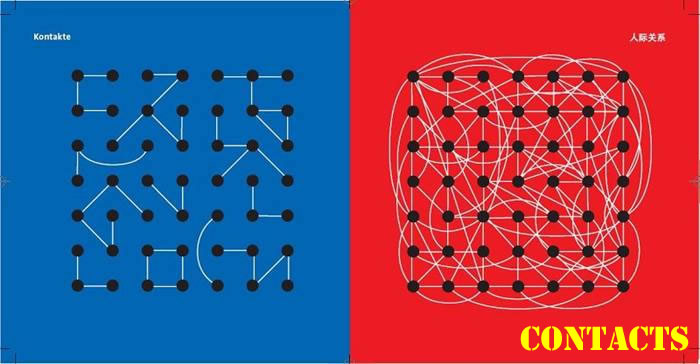
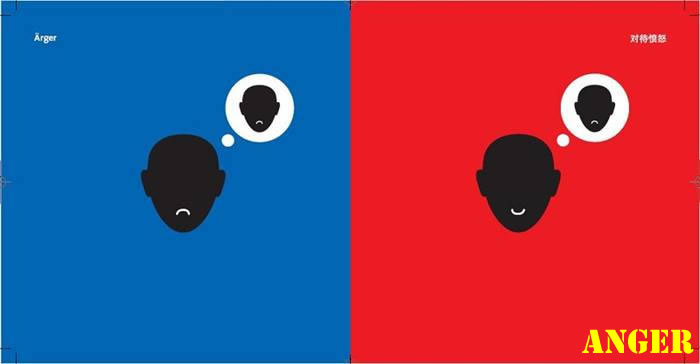
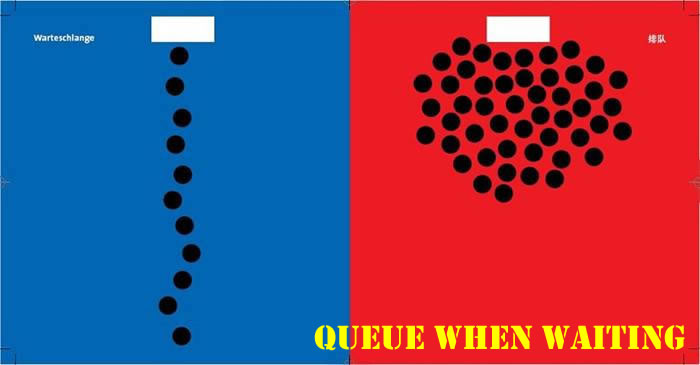
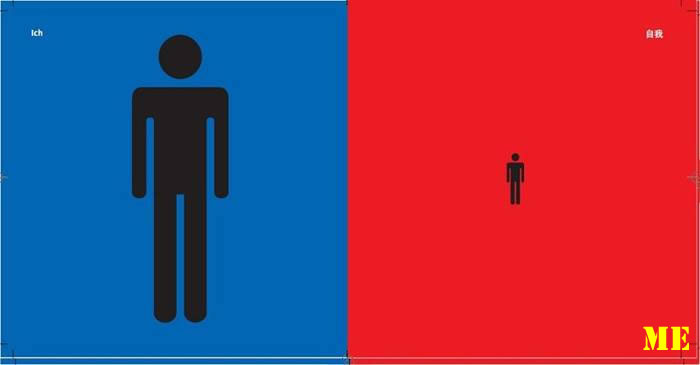
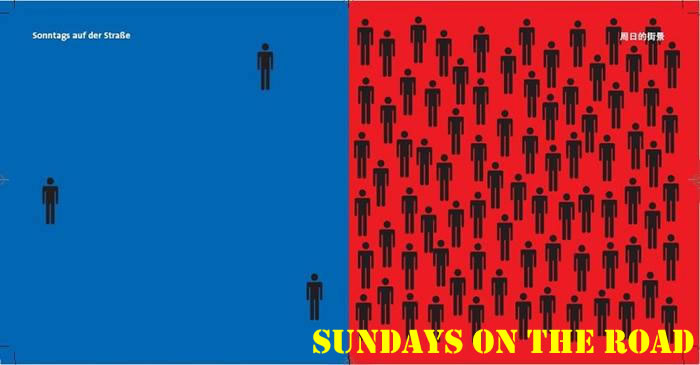
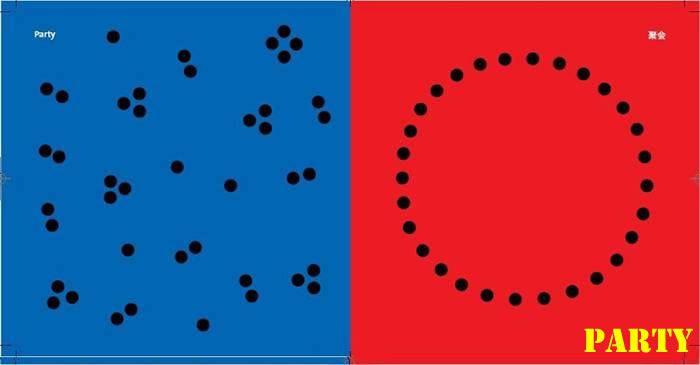
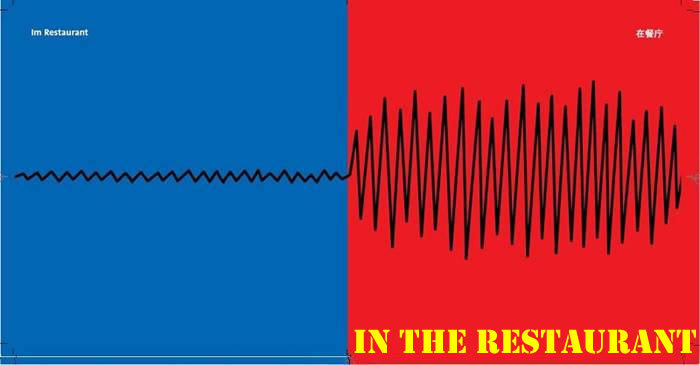
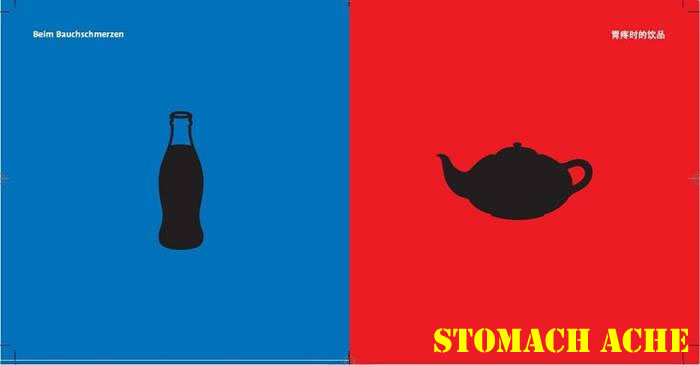
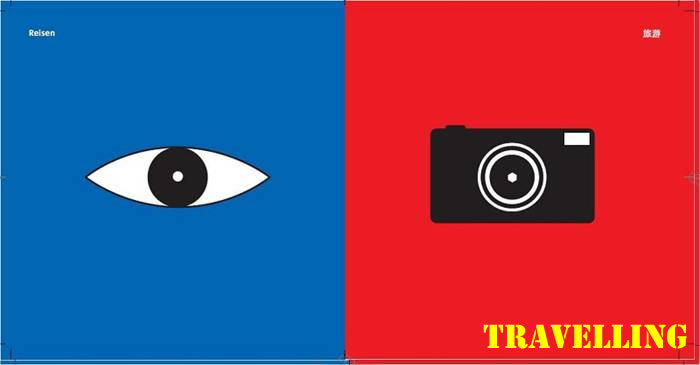
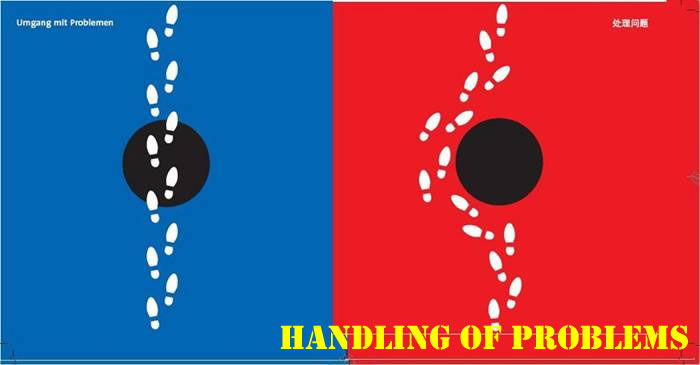
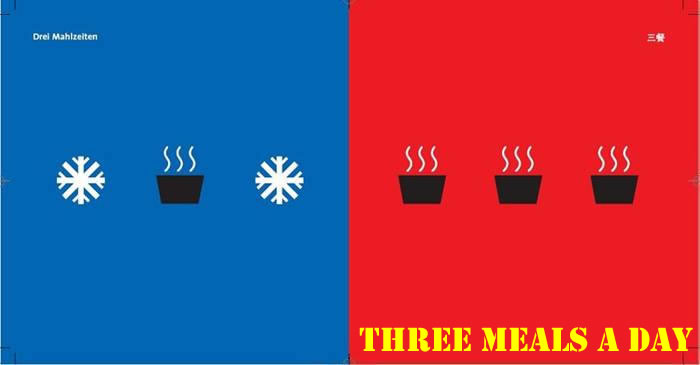
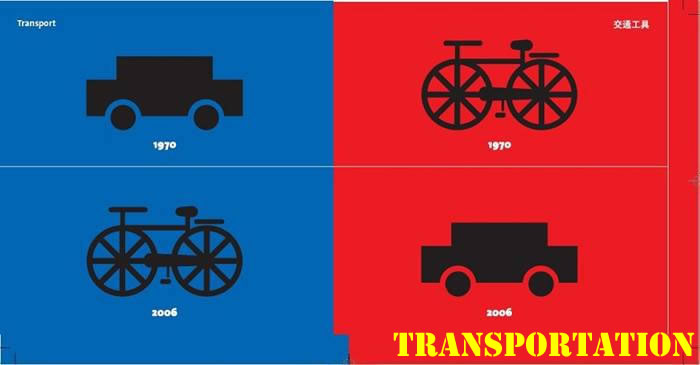
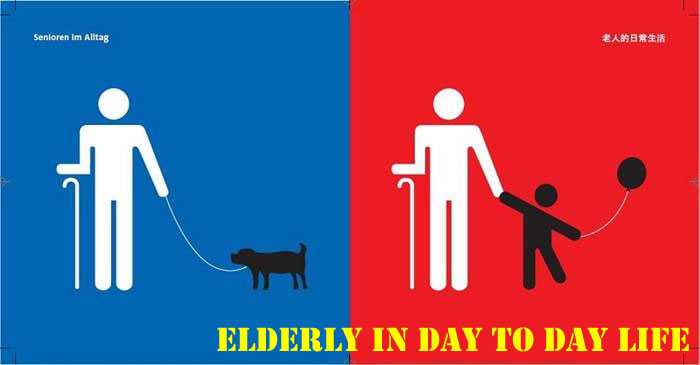
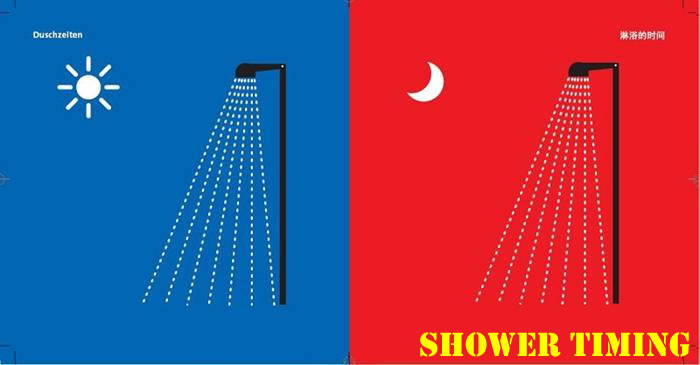
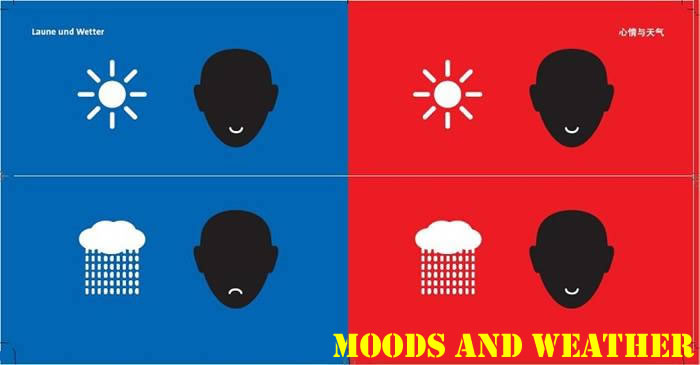
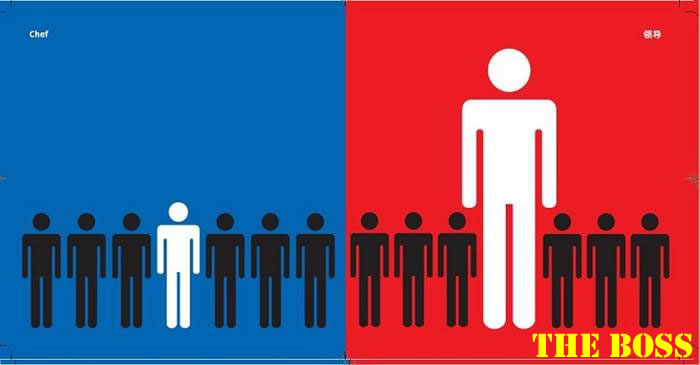
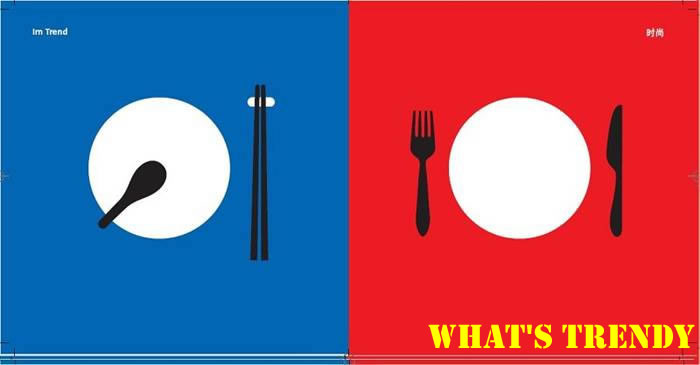
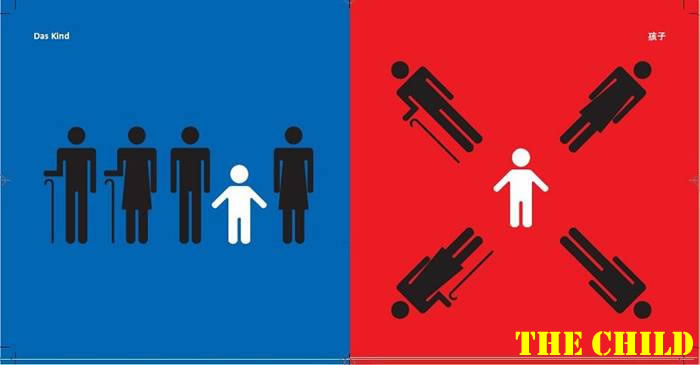
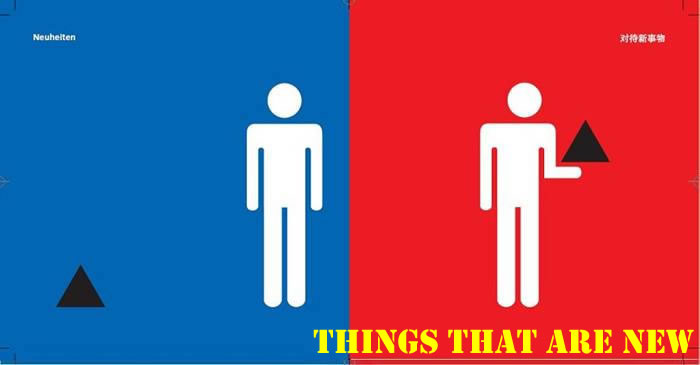
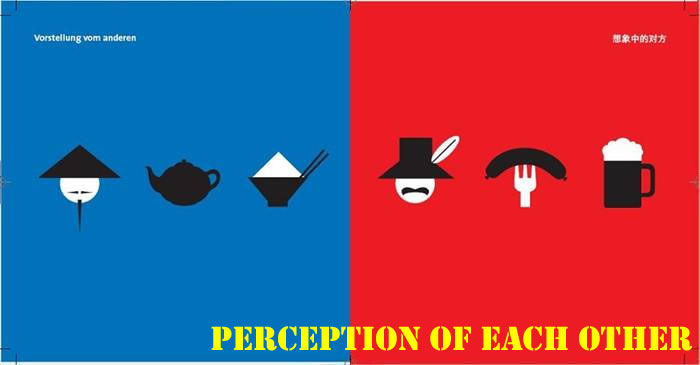
Kindly
click here to return to Asian Studies Main Page
Kindly
click here to return to Academic Interests
Please click here to return to Additional Information |




































